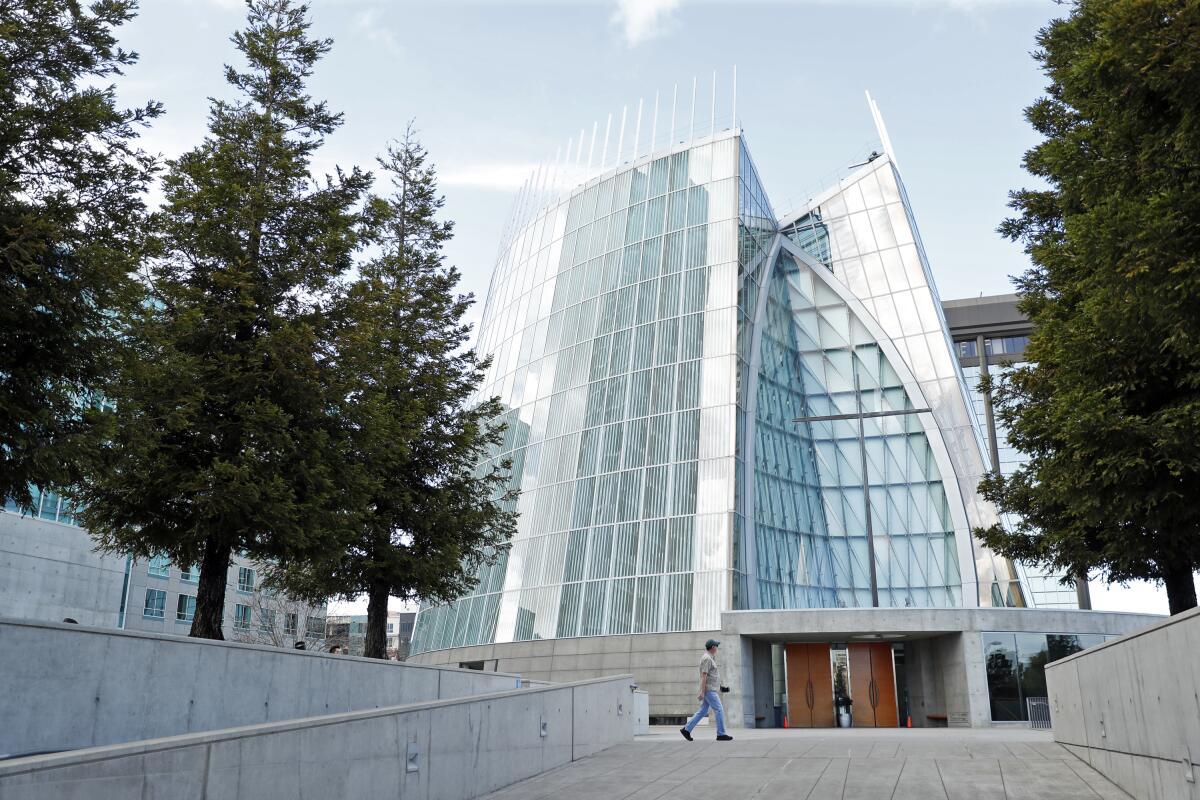Catholic diocese in Oakland files for bankruptcy in the face of decades-old sex abuse claims

- Share via
Facing hundreds of lawsuits over sexual abuse claims, the Roman Catholic bishop of Oakland filed for bankruptcy on behalf of the diocese, saying he hopes to “stabilize” the church’s finances and provide “just compensation” for victims.
“It is important we take responsibility for the damage done so we can all move beyond this moment and provide survivors with some measure of peace,” Bishop Michael C. Barber said of the Chapter 11 bankruptcy. “Sadly, for many, the pain caused by these horrific sins, no matter when they occurred, will never wash away, which is why we offer support to survivors and pray for their continued healing.”
The diocese was facing more than 330 lawsuits alleging childhood sexual abuse by priests mostly during the 1960s, ’70s and ’80s, Barber said.
“Given our current financial resources,” Barber said, it’s not possible to “shoulder the burden of litigating 330 cases.”
Other California-based dioceses also facing a wave of lawsuits have filed or pondered filing bankruptcies in the last few months, including dioceses in Santa Rosa, Sacramento and San Diego.
Even though Barber said the diocese hoped to provide “just compensation” to victims, bankruptcy protection often freezes most or all litigation and can limit the assets available for legal settlements. Victim advocates say the move can also allow the church to postpone or avoid depositions and document discovery in lawsuits that might uncover past misdeeds.
The bankruptcy case comes as the Catholic Church struggles with a decline in parishioners nationwide. Mass attendance in Oakland dropped by 42% from 2019 to 2021 because of the pandemic, Barber said.
Cases involving the Diocese of Oakland received international attention even before passage of a 2020 California law that allowed victims to file claims despite statute-of-limitation laws that barred many claims.
In 2010, the Associated Press reported on Oakland pastor Stephen Kiesle, who was convicted of molesting children, and asked to be defrocked by the church in 1981. But the Vatican and Cardinal Joseph Ratzinger — later Pope Benedict XVI — did not immediately grant his request. Kiesle remained a pastor for six more years, working as a volunteer in a church.
The California bill that allowed many of the lawsuits against the church to be filed extended the period for filing such suits from within eight years of the victim turning 18 to within 22 years.
The other option for victims before the bill was passed was to file within three years of discovering that psychological injury was due to childhood sexual abuse. That window was extended to five years.
Some survivors had lamented the possibility that the diocese might file for bankruptcy — a possibility Barber first suggested in March.
“Oakland does not deserve to declare insolvency. It owns a $200-million Cathedral,” Dan McNevin, a treasurer for the Survivors Network of those Abused by Priests in Oakland, said in a statement in March. “It owns acres and acres of land in places like Piedmont, Orinda, Lafayette, and Danville. It is not poor, in our opinion, except perhaps in spirit and integrity.”
Barber clarified that Catholic schools were separate legal entities and not included in the bankruptcy case and would continue operating normally. The church’s “mission and ministries” will continue normally as well, and employees will still be paid, Barber said.
More to Read
Sign up for Essential California
The most important California stories and recommendations in your inbox every morning.
You may occasionally receive promotional content from the Los Angeles Times.











